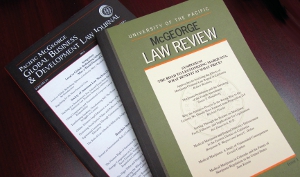Document Type
Article
Publication Date
2022
Abstract
The Victims’ Rights Movement has been one of the most consequential political forces in the United States over the past fifty-plus years. It has scored major legislative victories across the country. Every state and the federal government have adopted major laws advanced by the movement. After years of expanding prison populations, many policymakers and scholars have begun to question the wisdom of many of the movement’s legislative victories.
Despite current pushback against the movement, the movement and members of the public are pushing for the elimination or dramatic extensions of statutes of limitations for sex offenses and child-sex offenses. Such laws seem non-controversial to members of the public when they read about scandalous conduct of prominent, powerful men. What is not to like about extending the statute of limitations to allow indictment and conviction of pedophiles and rapists?
This paper explores that question. After providing a brief overview of statutes of limitations in the United States, it explores pressure to abandon or extend such statutes in sex offense and child-sex offense cases. Thereafter, the paper examines the arguments advanced by proponents of such laws and rebuts those claims. For example, this paper offers a rebuttal to the promise that victims of abuse will find “closure” by finally seeing their abusers convicted and to claims that victims often cannot recall details of their assault for years after their abuse, thereby justifying the extension of limitation periods. At its core, this paper advances the argument that extending statutes of limitations unacceptably increases the risk of convicting innocent defendants, a fact ignored by victims’ rights advocates.
Publication Title
DPCE ONLINE
Volume
49
Recommended Citation
Michael Vitiello, Expanding Statutes of Limitations for Sex Crimes: Bad Public Policy, 49 DPCE ONLINE, Jan. 2022, at http://www.dpceonline.it/index.php/dpceonline/article/view/1457.



